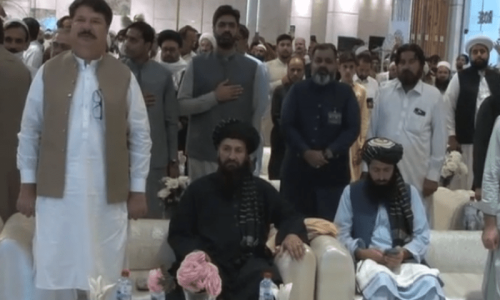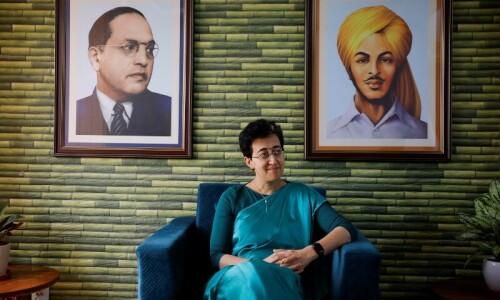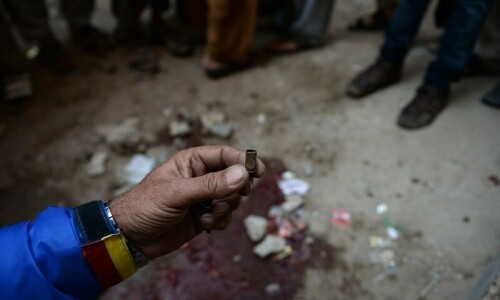KHAIRPUR, Dec 26: The Sindhi Hari Porhiyat Sangat chairman Punhal Sario has blamed wrong policies of successive governments for an upsurge of extremism and accompanying political crisis in the country.
Mr Sario said at a seminar organised by the Children and Labour Rights Organisation at the press club on Friday that under the prevailing feudal system, workers, peasants and poor people would never be able to get their rights. Every government had contributed to strengthening the feudal system and feudal lords, he said.
He said that under British Rule, the landlords were not only doled out lands but were also given magisterial powers to help the English rule the poor peasants.
He said that Zia’s Martial Law organised landlords under Majlis-i-Shoora, Musharraf provided them cover under local bodies governments and distributed districts among them like their personal fiefdoms.
He said that Musharraf created “Shehri Waderas” and handed over big cities to them. Though Bangladesh became a separate country in 1970 it was ahead of Pakistan in every walk of life, he said.
Comrade Taj Mari, a leader of Pakistan
Awami Party, said that Quaid-i-Azam envisaged Pakistan as a secular and democratic entity but the rulers took it along entirely different path.
He said that imperialism came to an end in Nepal and the dictatorship was overthrown but in Pakistan feudalism was being strengthened. Under Gen Yahya’s Martial Law fundamentalists and religious political parties were funded by the government so as to use them against democratic forces, he said.
The chairman of Civil Society, Mir Munawar Talpur, said that unless democratic forces, labourers, peasants and progressive forces were united at one platform they would not be able to get their rights.
He said that the system never helped the poor attain financial stability nor let political leadership to come up from their class.
The feudal leadership brought their women in national and provincial assemblies but the labourer and peasant class, which consisted of about 80 per cent of total population of the country, were not given representation in assemblies.
Among others Amjad Lashari, Saeed Khaskheli, Touqeer and Yousuf Khattak also spoke at the seminar.













































Dear visitor, the comments section is undergoing an overhaul and will return soon.